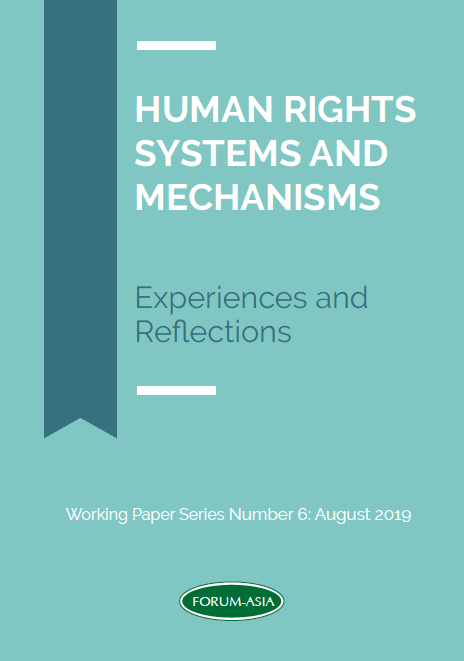Working Paper Series 6: Human Rights Systems and Mechanisms – Experiences and Reflections
28 August 2019 2:02 pm
 International, regional, and national human rights systems and mechanisms are crucial for the creation of an ecosystem where human rights are protected and promoted. While the United Nations (UN) plays a leadership role in setting human rights standards and ensuring their promotion and protection, it does not operate in isolation.
International, regional, and national human rights systems and mechanisms are crucial for the creation of an ecosystem where human rights are protected and promoted. While the United Nations (UN) plays a leadership role in setting human rights standards and ensuring their promotion and protection, it does not operate in isolation.
At the regional level, the Association of Southeast Asian Nations (ASEAN) set up specific human rights mechanisms to address and promote human rights, notably through the work of the ASEAN Intergovernmental Commission on Human Rights (AICHR) and ASEAN Commission on the Promotion and Protection of the Rights of Women and Children (ACWC).
When in 1993 a UN General Assembly resolution adopted the Paris Principles, the UN established a new global framework defining the mandate and function of national human rights institutions (NHRIs). NHRIs play a crucial role in linking international and regional human rights systems and mechanisms, with the implementation at the national level.
Following previous series on business and human rights, Sustainable Development Goals (SDGs), and civic space, this Working Paper of FORUM- ASIA looks at how main human rights systems and mechanisms operate at the national, regional, and international levels, reflecting on their achievements, challenges, and ways forward.
***
For the PDF version of this publication, click here
